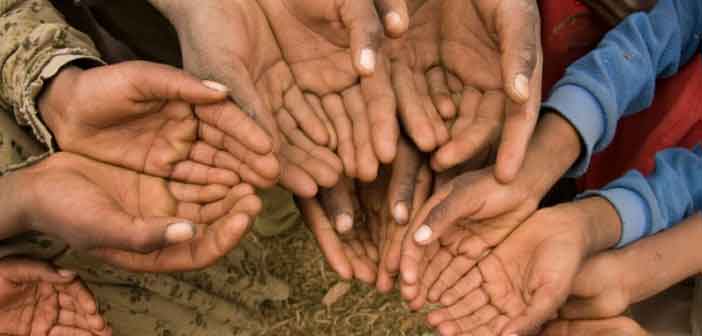Although the practice of giving charity spans across cultures and faiths, in Islam it is linked with the worship of God and achieving the state of righteousness. No worshipping of Allah is accepted as valid when a person who is in a position to give does not give. Whenever the scriptures of the Qur’an order Muslims to pray to Allah, right after that they are ordered to give charity.
You shall observe the Prayers (Salat) and give the obligatory charity (Zakat), and bow down with those who bow down. (2: 43)
You will not attain unto piety until you spend of that which you love. And whatsoever you spend, Allah is aware thereof. (3: 92)
They ask you, (O Muhammad) about giving: Say, the charity you give shall go to parents, the relatives, the orphans, the needy and the travelling aliens. Any good you do, God is fully aware thereof.” (2: 215)
Therefore, giving charity is strongly encouraged in Islam in order to purify one’s wealth and help in alleviating poverty and suffering.
In Islam, charity is not limited to material giving. It is a very broad-based concept. The Prophet Muhammad, may Allah’s peace and blessings be upon him, said: “There is no person who does not have the obligation of giving charity every day that the sun rises.”
Whereupon he was asked: “O messenger of God, where would we get something to give in charity (so often)?”
To which he replied: “Indeed the gates to goodness are many: glorifying God, praising Him, magnifying Him, saying ‘There is no god but Allah,’ enjoining the good and forbidding the wrong, removing any source of harm from the road, listening to the aggrieved, guiding the blind, showing the seeker his need, striving as far as your two legs could carry you, with deep concern to give succour to him who asks, carrying with the strength of your arms (the burdens of) the weak.
All these are (acts of) charity which is an obligation on you.” And he added: “And your smiling in the face of your brother is charity, your removing of stones and thorns from people’s paths is charity, and your guiding a man gone astray in the world is charity for you.” (Hadith, Bukhari and Muslim)
The Prophet Muhammad (peace be upon him) said: “None of you will have faith unless you love for your brother/sister what you love for yourself.”
In Islam, there are several forms of giving (charities). Zakat is a mandatory charity, while Waqf and Sadaqah are optional charities. Zakat is believed to be the purifier of one’s wealth. It also means “to grow.” Since Zakat is an obligation, some scholars argue that it should not be considered as charity, it is the right of the poor to a portion of the giver’s wealth. Every Muslim who possesses wealth above a Zakatpayable amount for one lunar year has to pay Zakat (normally 2.5 per cent of investments and savings).
Regarding Waqf (endowment), Prophet Muhammad (peace be upon him) said, “When a person dies, his/her deeds end, but three things continually benefit him/ her:
(1) endowments from which people benefit – schools, hospitals, ongoing charity, etc.
(2) knowledge that the person gave to people and they benefit from it
(3) pious children, who pray for him. (Hadith, Muslim). Therefore, Waqf, (ongoing charity) is highly valued in Islam.
Sadaqah is also an optional charity. It shows giver’s compassion for people in need. For example, responding to disasters by giving money or time, sponsoring an orphan in need, feeding the hungry and helping those who need help are forms of Sadaqah.
Prophet Muhammad (peace be upon him) said: “For charity shown to each creature of God with a pumping heart, there is a reward.” He also said: “There is none amongst the believers who plants a tree, or sows a seed, and then a bird, or a person, or an animal eats thereof, but it is regarded a charitable gift” (Hadith, Bukhari).






